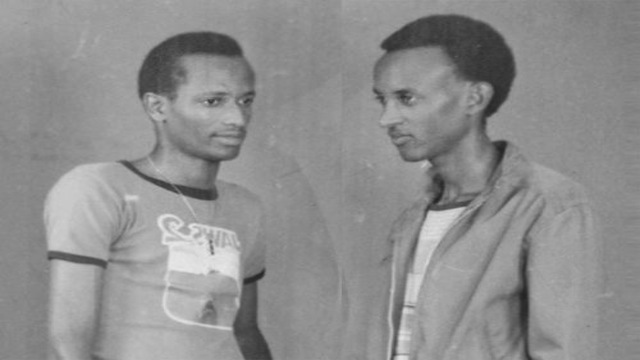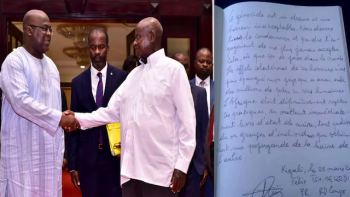Africa has some of the most ruthless, repressive, and corrupt dictators in the World. The most notorious took power following an armed rebellion, claiming to fight against repressive regimes and promising democracy.
Who would have thought in their youth, during the armed struggle, and in their early years of power, that these so called "revolutionary" leaders would turn into ones of the worst dictators in the World?
|
|
Joseph Kabila of the Democratic Republic of Congo: Also known as "Toto" (Mtoto = Baby), Joseph Kabila took over power after the assassination of his father, Laurent-Desire Kabila, 16 years ago. He had been part of his father's struggle against the Congolese dictator Mobutu Sese Seko. He has been in power since. Joseph Kabila has enriched himself and his relatives by looting the wealth of the Democratic Republico of the Congo, the potentially richest country in the World, widespread corruption, and imposing a reign of fear, terror, repression on the vast majority of his subjects. When the term allowed by the constitution expired in 2016, Joseph Kabila refused to step down and pushed elections to the end of 2018. As the end of 2018 approached, he has been in the process of organizing chaos in the DRC Congo to allow himself to remain in power for life. |
|
|
Paul Kagame of Rwanda: The gaunt 61-year-old often talks about tolerance, openeness, reconciliation, and giving power to the Rwandan peopl but for now he is mostly known for his authoritarian streak and an impressive record of bloody repression and massive systematic crimes both inside Rwanda and in neighboring countries, since 1990. Initially claiming to be ready to release power, in 2015, Paul Kagame, when his second term allowed by the constitution progressed, decided to rewrite the term-limit clause of the Rwandan constitution, to allow him to run for a third term in the 2017 elections and remain in power for life. |
|
|
Yoweri Museveni of Uganda, 76, born in 1944 and dictator since 1986. When he took power in 1986, he promised to leave power in 1990, then in 1996, then in 2001, then in 2006, then in in 2011, then in 2015, then never. In 2000, he told Los Angeles Times: "I will leave office, for sure, because I am not a hereditary king. I would be very glad to leave office, once I have served my term. To be remembered, just as a freedom fighter, who helped to give the people of Uganda a key to their future, to give them democracy, get rid of the dictatorship." Well, he not only remains the dictator of Uganda but also, on December 27, 2017, he amended the Constitution to remove the presidential age limit caps, allowing himlself to remain in power for life. |
Other Notorious African Dictators:
- Paul Biya of Cameroon, 85, born in 1933 and dictator since 1982. Initially a promising bright and visionaly democratic leader. he has now turned into a senile dictator, awaiting to leave power only by death.
- Denis Sassou Nguesso of the Republic of Congo, 75, born in 1943 and dictator between 1979-1990 and since 1997. He was forced to give up power in 1990 and then led a bloody civil war to retake power in 1997. His nepotism is know around teh world.
- Teodoro Obiang Nguema Mbasogo of Equatorial Guinea, 76, born in 1942 and dictator since 1979. He is one of the most corrupt leaders in Africa. Yet, he overyhrew his uncle Macías, after the latter ordered the murders of several members of their relatives, including Obiang's brother, Obiang and others in Macías' inner circle feared the president had become insane. Obiang overthrew his uncle on 3 August 1979 in a bloody soup, tried him for genocide and executed him by a firing squad on 29 September 1979. Since then, he has become the copy of his uncle, with the sole difference that he has pushed nepotism to the extreme
- Omar Hassan Ahmad al-Bashir of Soudan, 74, born in 1944. He took power, after ousting the unstable coalition government of Prime Minister Sadiq al-Mahdi in a military coup on 30 June 1989. On 16 October 1993, he appointed himself President of Soudan. SInce then, Soudanese people have been living a nighmare and the country has effectively or eventually split into three pieces: South Sudan, Darfour, and the rest.


















